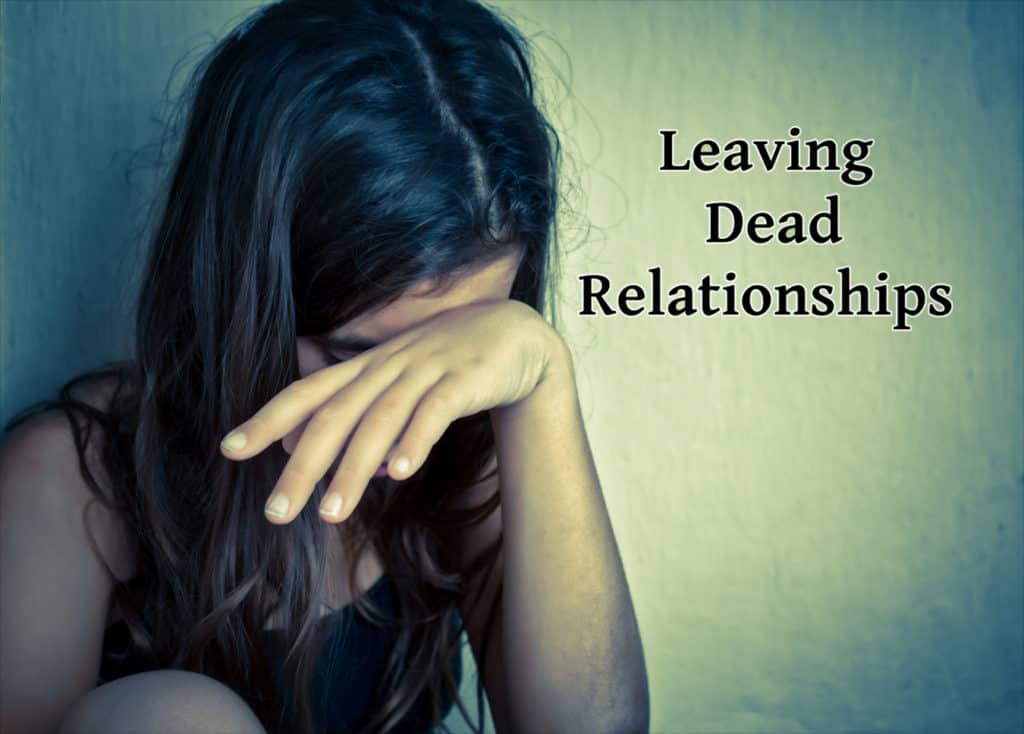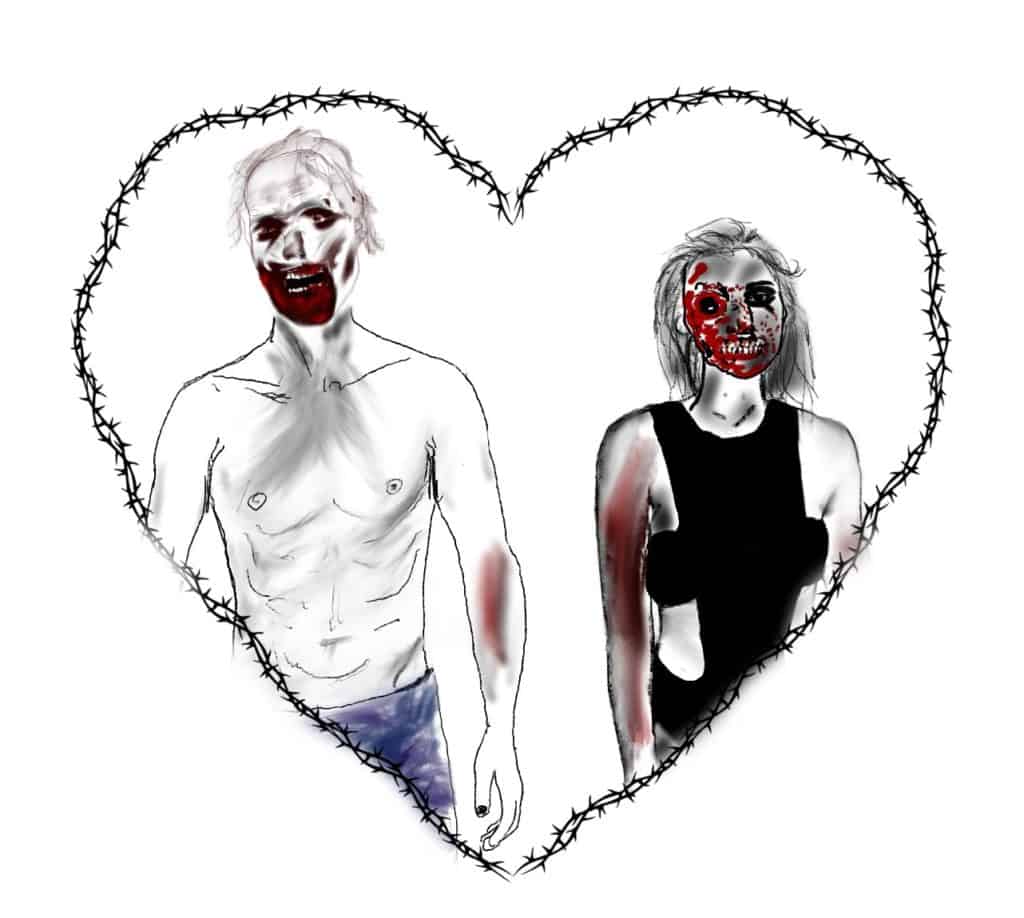 Let’s start leaving dead relationships. Some people hold love hostage. Hiding behind a mask, they threaten to kill love if another doesn’t submit to spoken or unspoken demands. Sometimes a piece of love is cut off, a warning, just to prove that they are serious. Only the mind perpetrates such terrorism, mind with its boundless expectations. Such people will never set love free. Any love that once was alive will probably be killed. Regardless, such a relationship might continue to last, even for a lifetime. Anyone who participates in such terrorism, ignores the fact that he or she will die, having spent a lifetime squandering love.
Let’s start leaving dead relationships. Some people hold love hostage. Hiding behind a mask, they threaten to kill love if another doesn’t submit to spoken or unspoken demands. Sometimes a piece of love is cut off, a warning, just to prove that they are serious. Only the mind perpetrates such terrorism, mind with its boundless expectations. Such people will never set love free. Any love that once was alive will probably be killed. Regardless, such a relationship might continue to last, even for a lifetime. Anyone who participates in such terrorism, ignores the fact that he or she will die, having spent a lifetime squandering love.
I’ve been pointing out fault with traditional relationship models, such as committed monogamy, for over thirty years. It’s fair to say I’m biased. Remember bias doesn’t make what I say false but it calls on the reader to be vigilant. I’m not telling anyone who or how to fuck. I am calling into question beliefs about sex relationships regardless of how the consenting adults meet. As long as there is no coercion, recklessness, deceit or violence, there is no reason to oppose any union. There are wholesome non-traditional relationships without the destructive tendencies mentioned above. I’ve been in such relationships for over twenty years outside the boundaries of committed monogamy. Such relationships have a value that cannot be obtained inside committed monogamy e.g. if people wish to experience cooperative breeding (something a bit like our tribal ancestors) and have more than one lover, such a union would be excluded from committed monogamy.
I must digress to say it’s easy to feel afraid to plainly state value (moral) judgments, especially about sex relations because it is touchy and it invites conflict. Let’s be clear, we all make value judgments! We simply don’t state those judgments publicly and thereby subject them to scrutiny. This timidity is a loss morally because we miss the views of others that might show our judgments in a new light, making them stronger or weaker or even showing them to be false. Unfortunately, openly non-monogamous people exist in a minority, they often feel such timidity because supporters of monogamy (regardless of conduct being consistent with their beliefs) have a powerful tradition at their back. They may feel indignant about nontraditional relationships. The arguments on the traditional side range from reasonable doubt to vituperative attacks such as slut shaming. With this in mind I’ll exemplify one particular problem with committed monogamy, the problem of dead relationships and plunge into the troubled waters of judging value. Remember when judging value, the huge difference between value as means and ends.
 My beloved Sharon is supporting a woman who is going through a cruel divorce. The split came wholly as a surprise. Her husband imposed the divorce abruptly and tried to steal her retirement money and other assets. The unbridled selfishness is repugnant! After more than two decades of marriage such hostility seems totally unfair. I suggest the relationship probably died long before she or even both knew. I suspect many of us will spend our lives in dead relationships. Now this woman experienced moments of doubt but fear kept her in the marriage. Many in similar circumstances feel held back. Not knowing what else to do outside the routine and material concerns turn fear into imaginary chains binding people to life-sucking dead relationships. In such bondage there exists a tendency to self satisfy by thinking that anything we don’t have in our relationship is not really worth having. That is not true. Why aren’t we leaving dead relationships?
My beloved Sharon is supporting a woman who is going through a cruel divorce. The split came wholly as a surprise. Her husband imposed the divorce abruptly and tried to steal her retirement money and other assets. The unbridled selfishness is repugnant! After more than two decades of marriage such hostility seems totally unfair. I suggest the relationship probably died long before she or even both knew. I suspect many of us will spend our lives in dead relationships. Now this woman experienced moments of doubt but fear kept her in the marriage. Many in similar circumstances feel held back. Not knowing what else to do outside the routine and material concerns turn fear into imaginary chains binding people to life-sucking dead relationships. In such bondage there exists a tendency to self satisfy by thinking that anything we don’t have in our relationship is not really worth having. That is not true. Why aren’t we leaving dead relationships?
To believe that a relationship is good as an end when it is not is a mistake of judgment. A relationship may be a good means to money, property, prestige, etc. (or the mere appearance of these things). We forget a relationship can serve such a function AND still lack the qualities that make for a good life. People who indulge each other with vacuous affability, merely tolerate or even abuse each other can still share pleasures of money, property and prestige. Consider leaving dead relationships.
When we mistake means for ends, we miss the ends because we think we already have them. When the security we seek turns out to be an illusion, the years sacrificed we know to be a tragic waste. Our lives are precious and temporary, what we give our time too matters. When my mother lay dying, in the next room was a man who was also dying, fully conscious and yelling. He cried out ‘I’m alone, nobody cares, why won’t someone help me.’ A nurse came to console him but he snapped at her viciously saying, ‘you don’t care.’ They ended up sedating him. People in a dying relationship use different kinds of sedation, they buy more property, wine, vacations, food, counseling and countless amusements but that is not what makes a good life, someone utterly miserable can do all of those things.
There is a huge difference between simply not being alone and being with people who make you glad to be alive. Some of us are so enthralled by routine in relationships we can’t imagine an alternative. That doesn’t mean there aren’t many alternatives, it means we are blind to those facts.
Consider leaving dead relationships.
The fact that love is a living and changing experience or that it may disappear or die due to circumstances unforeseen, abuse or neglect, does not diminish loves value. The time to love, truthfully in intelligence and wholeheartedly is while we have the chance. In the end, all things are in flux. Sometimes the most loving thing we can do for ourselves and others is leave a situation that is not loving. Before the rot sets in, a dead woman may still have some beauty but she isn’t the same as when she lived. If love dies, do not live with that corpse because you’ll give the time of your life for nothing.
We must recognise the precious good things in life and that we can’t hold on to anything should make us more grateful for such good things. The temporary nature of all things is reason to enjoy all the more! Truth, love, intelligence, friendship, joy, empathy, compassion, appreciation of beauty and things like this are part of a good life and when combined, they become part of a whole that’s even better. Notice that these things are not objects but qualities and relations that are uniquely human. To live a life without them when we have a capacity for these things is a tragic miss. The things that make for gratitude, for a life well lived, suggest that we avail ourselves of these good things when we recognise them so we don’t miss what is best in life.
By Todd Vickers

Pingback: love ideals – vivriti
Pingback: intimate relationships – vivriti
Pingback: Four reasons to question marriage love ideals - Best Spirituality Books | Relationship Psychology Books
Pingback: Love wants to live | No Shame in Sex